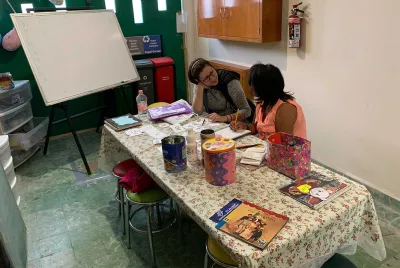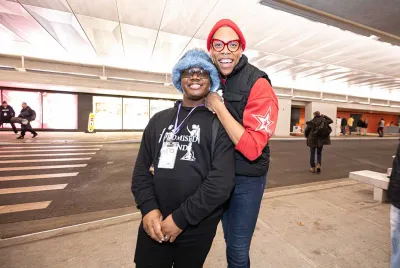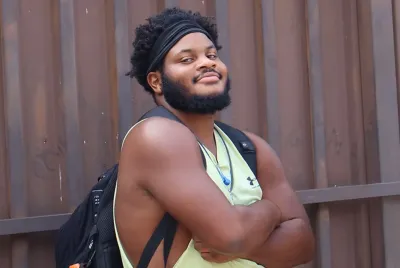Using Music as a Bridge to Healing and Wholeness
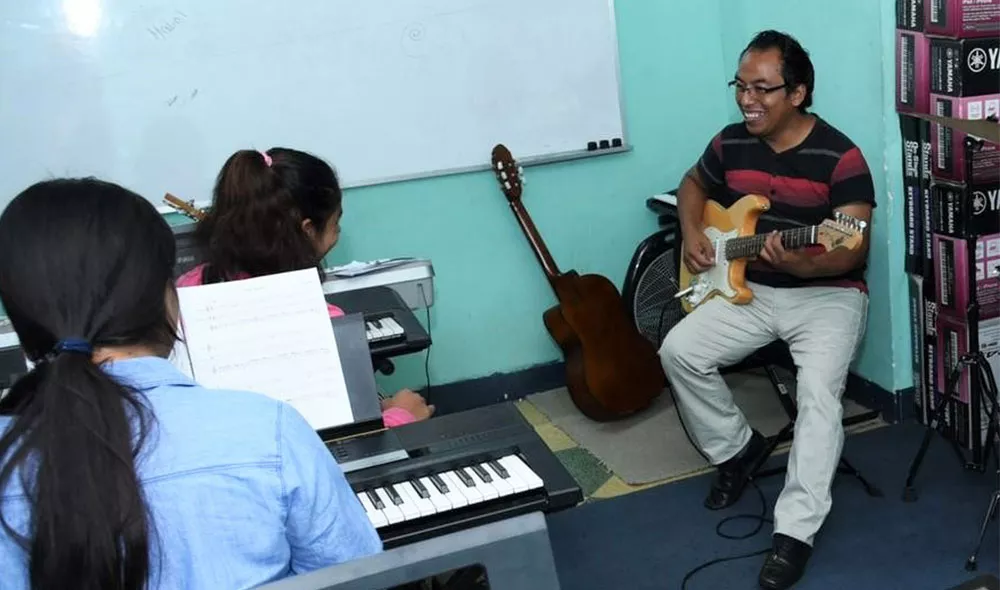
Esteban Monroy once played with popular bands to packed arenas of up to 30,000 roaring fans. Today — and for the past eight years — he applies his musical talent much differently, teaching young girls at Covenant House Guatemala to use music as a bridge to healing and wholeness.
“You know that feeling, when you see your child going places and doing great things? There’s nothing like it. At Covenant House Guatemala, I have all these children, and to see them go from sullen to smiling while they learn to play,” said Esteban, “is priceless.
He is referring to the children and youth at the girls residence at Covenant House Guatemala. Until last month, when Covenant House opened a boys residence, it was our only youth shelter in the country, where our program is known as La Alianza. For the past 12 years, it has been home to up to 60 girls, just 12 to 18 years old, who are survivors of human trafficking, abuse, and sexual exploitation. Some have babies of their own.
Esteban’s official title is director of music programs, but his colleagues call him a hero. So does Kevin Ryan, president and CEO of Covenant House International, who, while visiting Guatemala for the inauguration of the new boys shelter, met up with Esteban to learn firsthand the details of his journey to Covenant House.
“You have to tell me this,” Kevin said. “Where were you playing in front of 20,000 to 30,000 people! What was your music career before you took up teaching?”
“I played cumbia professionally with a lot of Mexican bands,” Esteban said. Among them was Ángeles Azules, or Blue Angels, an innovative and enduring group that specializes in different forms of cumbia. Cumbia is popular music that originated in Colombia and spread like wildfire across the Latin American continent.
For Esteban, though, even fans’ insistent cries for ¡Otra!, More!, couldn’t bring him as much joy as transforming lives through music at Covenant House Guatemala. He built our music program from scratch, plying his talents as musician and producer to help young trauma survivors believe in themselves, recover from the harm done to them, and reach for a different future — a future where they feel safe to explore their creativity and express themselves.
“But when you first came here, we didn’t even have any musical instruments at Covenant House Guatemala,” Kevin reminded Esteban.
“That’s true,” Esteban said. “That first year, we got five flutes.” And what a difference they made. “I remember there was a girl called Anabelia in our first group. She had a very strong personality. Then, all of a sudden, there she was, singing in the choir and playing the flute. Thanks to her example and that of the other four girls on flute, we were able to open up the music program.”
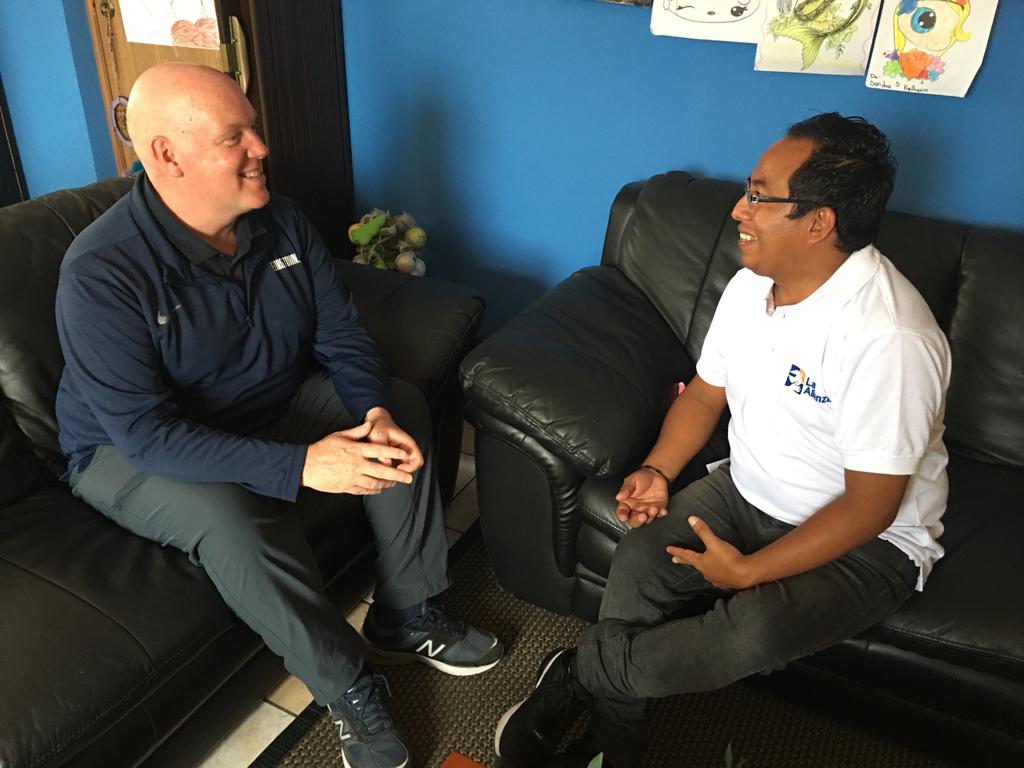
Then came a gift from Covenant House supporter and country singer-songwriter Martina McBride, and we were able to equip the music program with a variety of musical instruments. Two years ago, we added the marimba, which is very special to Guatemala’s mainly Indigenous population. It is very like the xylophone, but warmer in tone.
Esteban recalled a young girl he invited to join the marimba group. At first she refused. ”No,” she told him, “because I know I’m not going to be good at it. I can’t hold a microphone, I’m too embarrassed.” Then, after taking up the instrument, she found her confidence. She not only played but, also, became an emcee at some of the musical events. Before she exited the program, she wrote Esteban a note.
“Thank you for everything,” she said. “For showing me that I am capable of achieving what I want and giving me the life lesson that dreams do come true, if we work for them. Thank you for letting me be part of the marimba group.”
“Music was the bridge,” Esteban said.
While Esteban himself is adept on many musical instruments — bass, piano, guitar, drums, marimba, and flute — he no longer yearns for the spotlight. These days, it’s when he sees the girls of Covenant House Guatemala onstage that his face lights up —their patience, discipline, and collaboration paying off in beautiful harmonies.
“Sometimes I get tired after rehearsing and rehearsing,” he said. “ But when they get on stage, it’s all worth it.”
“It seems to me that you’re doing exactly what you’re supposed to be doing, that you have found your purpose and you’re making everyone around you better for being in that space,” Kevin remarked.
“I love my work. What better feeling is there than to give something that is not returnable, that is intangible?” Esteban responded. “I want to be able to offer advice to the girls that will stay with them long after they leave us, that will never leave them, and will always be in their lives.”
You might also like...
All storiesShelter Is Only the Beginning
From crisis to care: Find out what it's like when a young person enters our doors.
